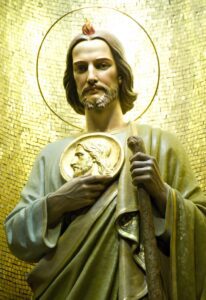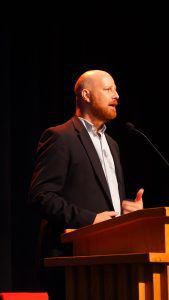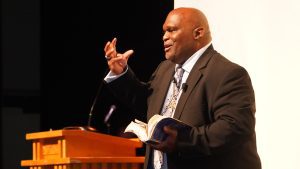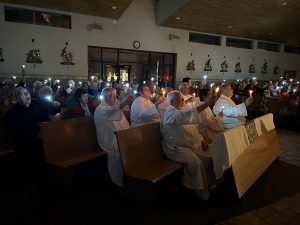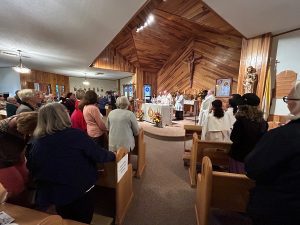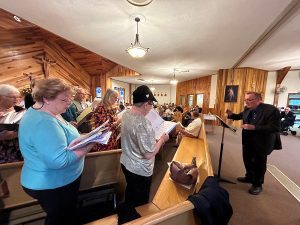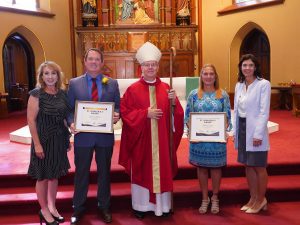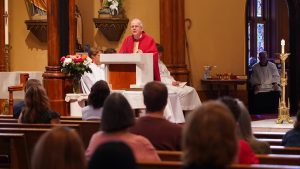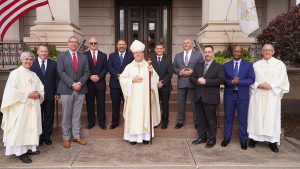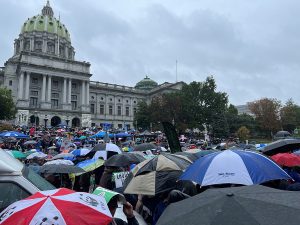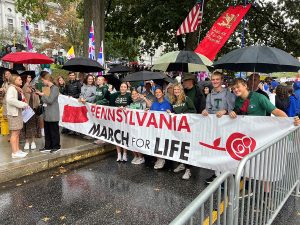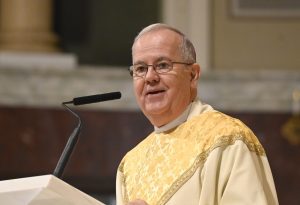WILKES-BARRE – With colder nights on the horizon, construction is now underway on the new, permanent location for Mother Teresa’s Haven, an emergency shelter for men experiencing homelessness, which is operated by Catholic Social Services of the Diocese of Scranton.
Located at 39 East Jackson Street, directly above Saint Vincent de Paul Kitchen, the new facility will provide stability and essential services for those in need.
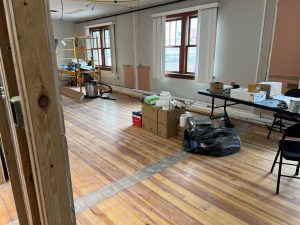
“I’m like a little kid as Christmas is approaching,” Joe Mahoney, Chief Executive Officer of Catholic Social Services, said while touring the facility Oct. 10. “I’m so ready to have our people move into this space. Panzitta Enterprises, our construction contractor, has been wonderful to work with on this whole project.”
For several decades, Mother Teresa’s Haven has been ‘nomadic’ in nature, operating out of various churches in Wilkes-Barre. Since the COVID-19 pandemic, it has been housed in the basement of Saint Mary’s Church of the Immaculate Conception.
Having a permanent site will not only enhance the quality of services offered but will also enable better coordination with other local providers.
“CareerLink is right behind us. There are health services and mental health services within walking distance,” Mahoney added.
The shelter will also be able to coordinate services with Saint Vincent de Paul Kitchen, along with its food and clothing pantries.

“If somebody comes in without a pair of shoes, we’re going to be able to go downstairs and immediately solve that problem,” Harry Lyons, program director for Mother Teresa’s Haven, said.
The new shelter will have space for 20 beds and will also feature showers and laundry facilities for the first time.
“To be able to wake up in the morning and take a shower is not only a matter of hygiene and health, but basic human dignity,” Lyons added.
Construction is expected to be completely around Thanksgiving, just in time for the winter months, when the need for support is often most noticeable. The new shelter will be handicap accessible with access available via elevator.
Since Catholic Social Services owns the building, managers will also have flexibility to extend hours as weather conditions warrant.
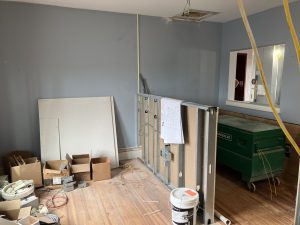
“If there is a foot of snow on the ground, or if it is four degrees out, I’m going to be able to make the decision that we are going to stay open that day and not put people out into the cold,” Lyons explained.
Community members – from county and city leaders to Bishop Bambera and local parishes – have been extremely supportive of the project. Funding from the ongoing Catholic Ministries Appeal will help the new shelter operate.
“This is really a community project,” Mahoney said. “This is where we need to be.”

